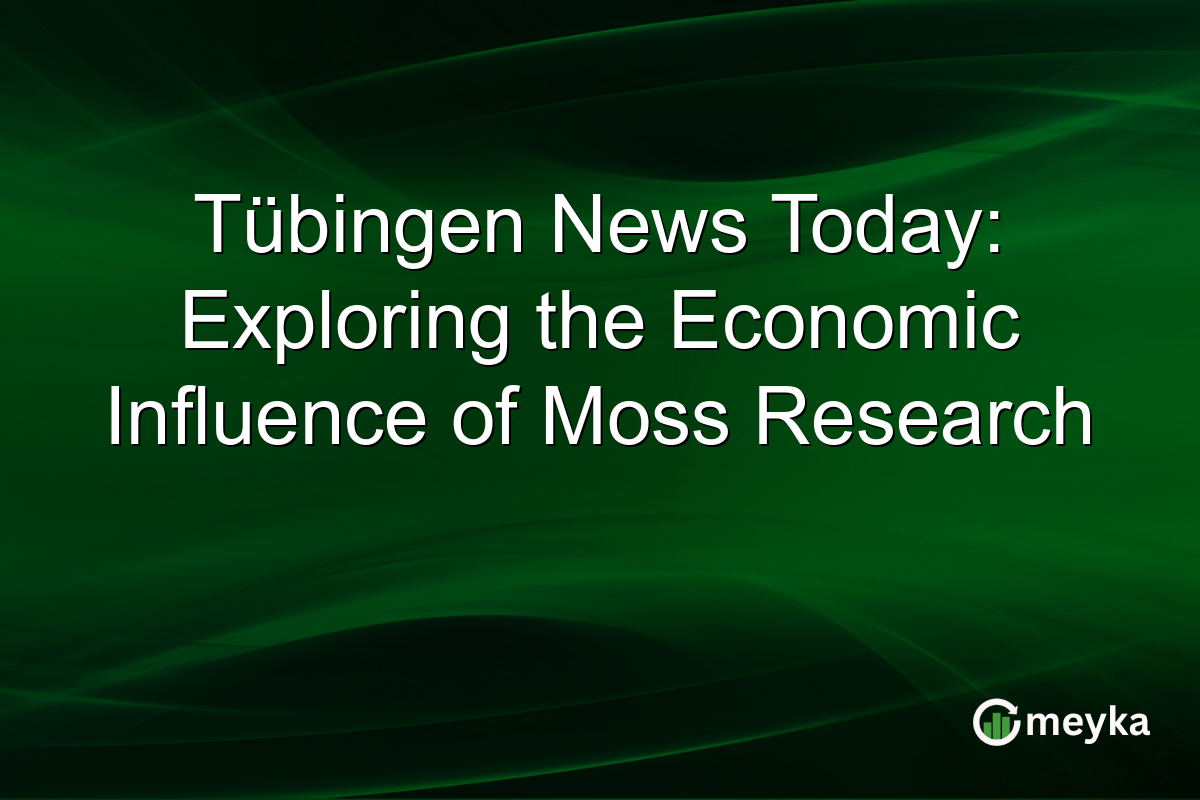Tübingen News Today: Exploring the Economic Influence of Moss Research
Tübingen has emerged as a notable player in climate change economics due to groundbreaking research on mosses. This exploration of Tübingen’s focus on mosses highlights their potential in carbon sequestration. By understanding these mechanisms, we uncover significant economic impacts, promoting sustainable practices and investment opportunities.
The Science of Moss and Carbon Sequestration
Mosses play a crucial role in capturing carbon dioxide, making them a key player in carbon sequestration. Tübingen University leads global research in understanding these processes. This research shows promise in reducing atmospheric CO2 levels efficiently. With climate change economics taking center stage, mosses offer a viable, natural solution.
Economic Implications of Moss Research
By scaling this research, Tübingen can aid in developing large-scale carbon capture techniques. This supports global efforts to mitigate climate change’s economic impacts. Such advancements could transform environmental policies, especially in regions prioritizing sustainable development.
Opportunities for Green Investment
The economic benefits of moss research extend to investment in green technologies. As Tübingen pioneers these studies, it creates a framework for future eco-friendly advancements. Investors may find lucrative opportunities in companies embracing these green technologies.
For instance, adopting moss in urban planning not only boosts environmental strategies but also provides direct financial benefits by enhancing city livability and cutting emissions. The focus on carbon sequestration aligns with Tübingen’s economic impact goals, positioning it as a hub for green innovation.
Governmental Support and Policy Development
The German government supports initiatives like moss research, providing funding and resources. This commitment enhances regional economic development and aligns with broader EU environmental goals. Such governmental backing is crucial for sustaining scientific research and translating findings into actionable climate policies.
Legal and Regulatory Frameworks
To bolster these efforts, new laws and regulations may emerge, focusing on incentivizing sustainable practices. For investors, understanding these frameworks is essential to tapping into the benefits offered by eco-friendly policies. This enhances the investment landscape, encouraging a shift towards green economies.
Final Thoughts
Tübingen is setting a benchmark with its focus on moss research as part of a broader strategy in climate economics. The intricate balance of science, economy, and policy showcases how regions can spearhead sustainable change. Investors and policymakers alike stand to benefit. As these studies progress, they will likely inform global practices and policy decisions. By highlighting moss’s role, Tübingen exemplifies the potential for science-led economic transformation. This approach promises tangible dividends, not just for the environment, but also for the economic structure of societies committed to sustainability.
FAQs
Mosses absorb carbon dioxide through photosynthesis, storing carbon in plant biomass. This reduces atmospheric CO2 levels, playing a vital role in mitigating climate change. Tübingen’s research explores optimizing these processes to enhance carbon sequestration efficiency.
This research fuels investment in green technologies and sustainable urban development. Firms adopting moss for carbon capture can attract funding, offering investors opportunities in expanding eco-friendly markets.
Government funding enhances research capabilities, enabling breakthroughs in carbon sequestration techniques. Policies supporting such research stimulate economic growth, embedding sustainability into economic frameworks.
Disclaimer:
The content shared by Meyka AI PTY LTD is solely for research and informational purposes. Meyka is not a financial advisory service, and the information provided should not be considered investment or trading advice.






